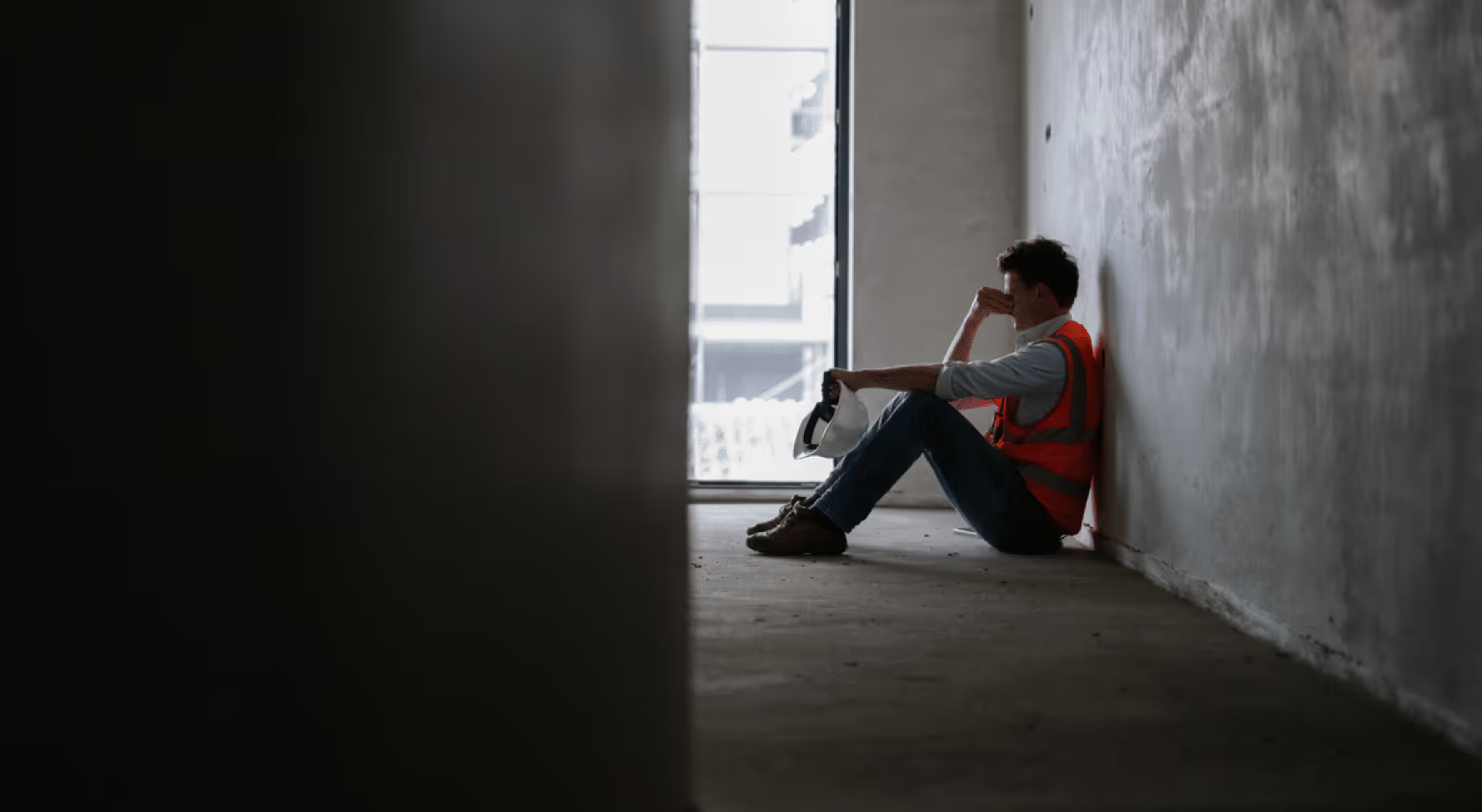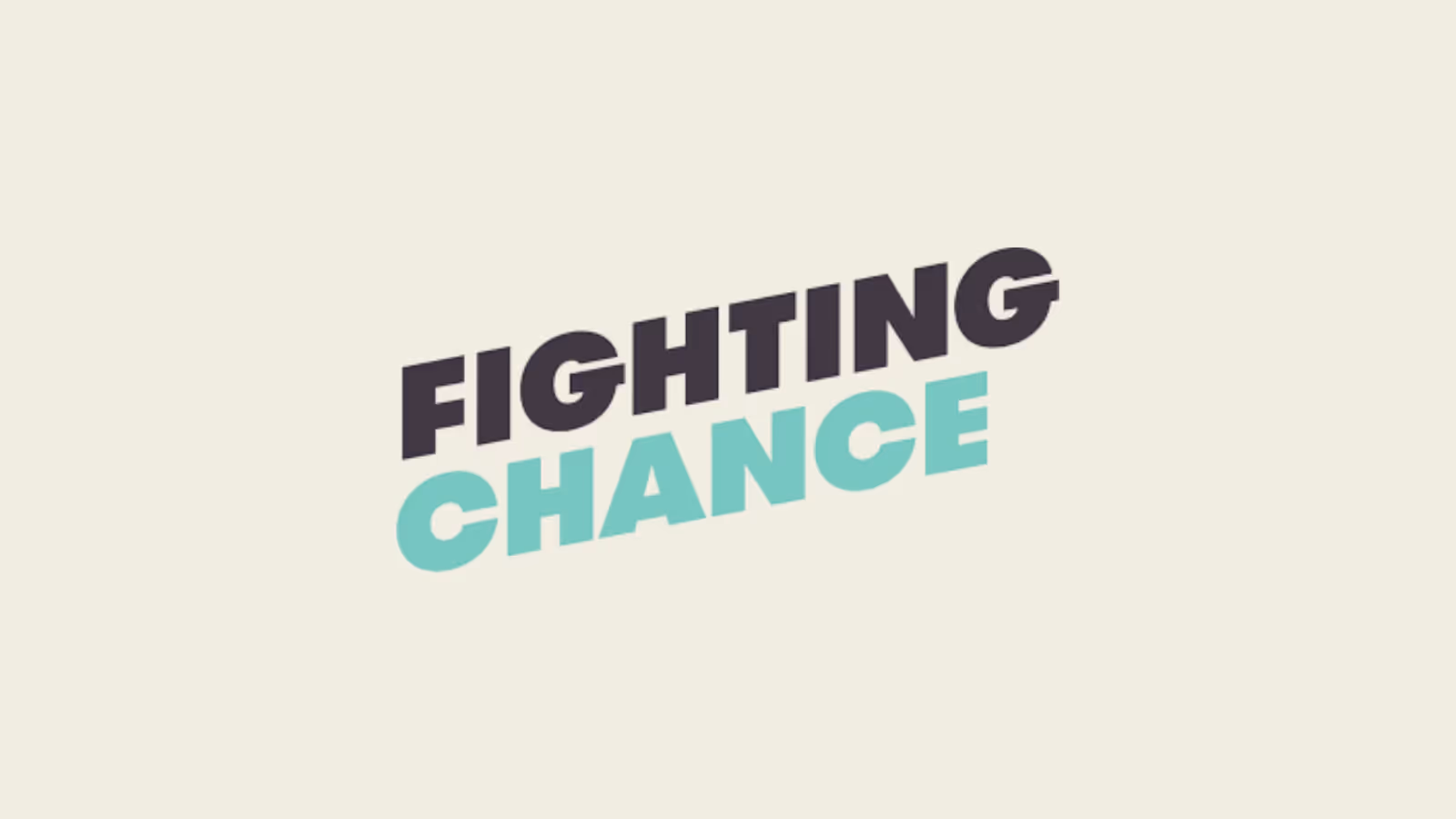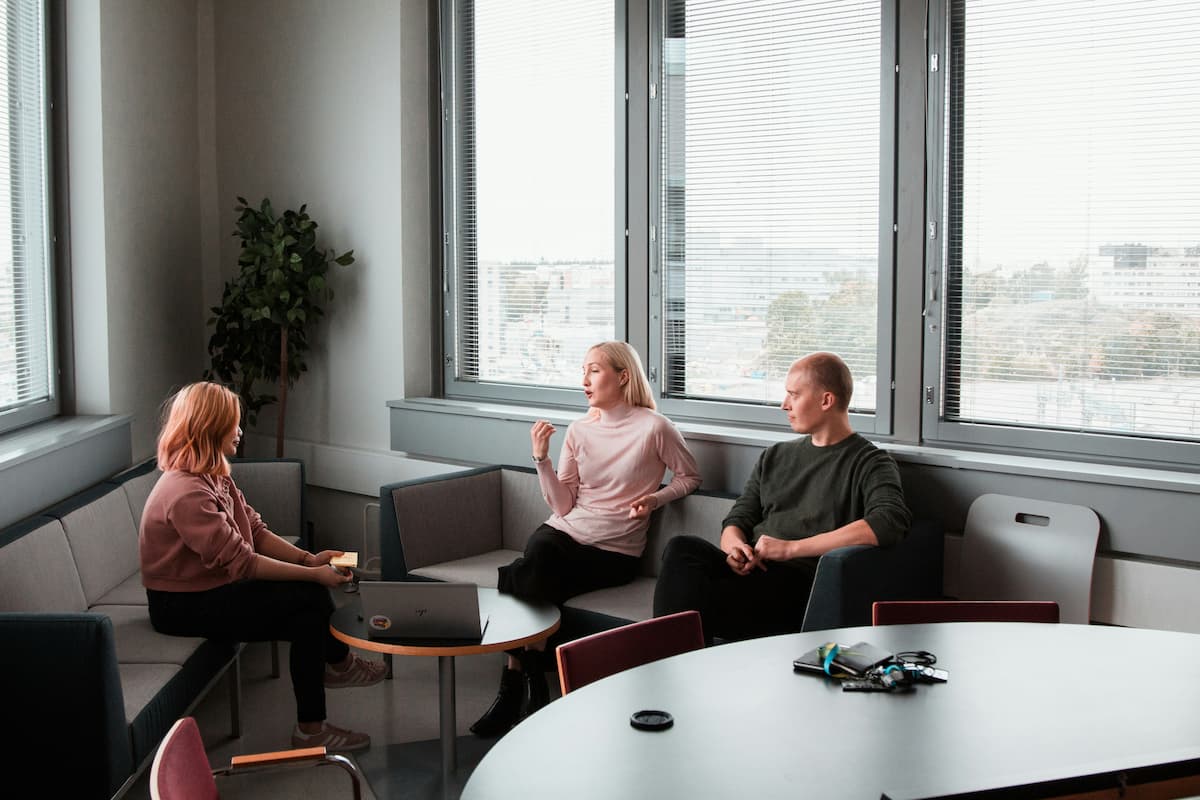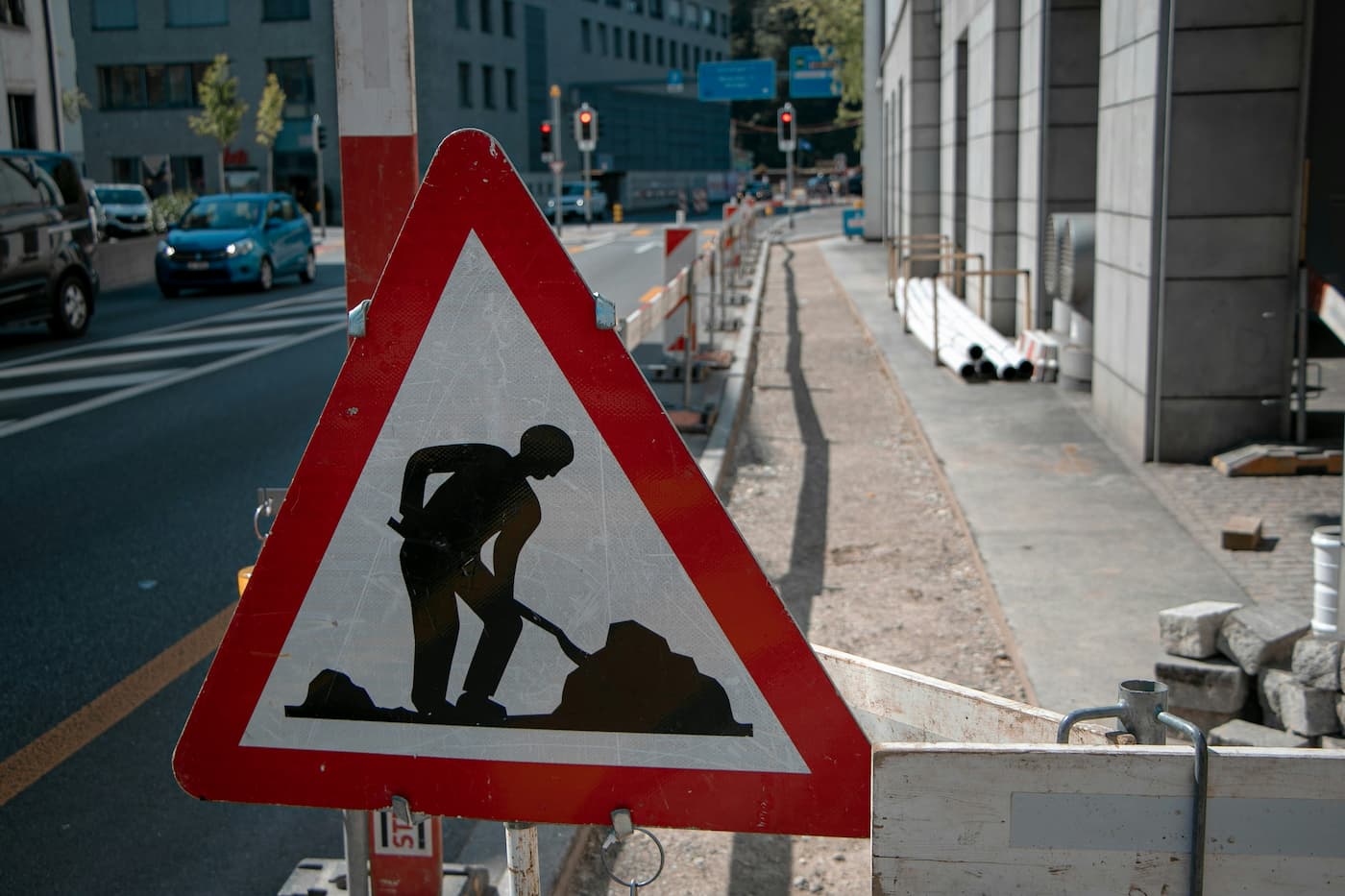Construction Mental Health Statistics
Mental health in construction—key statistics for Australia and worldwide.
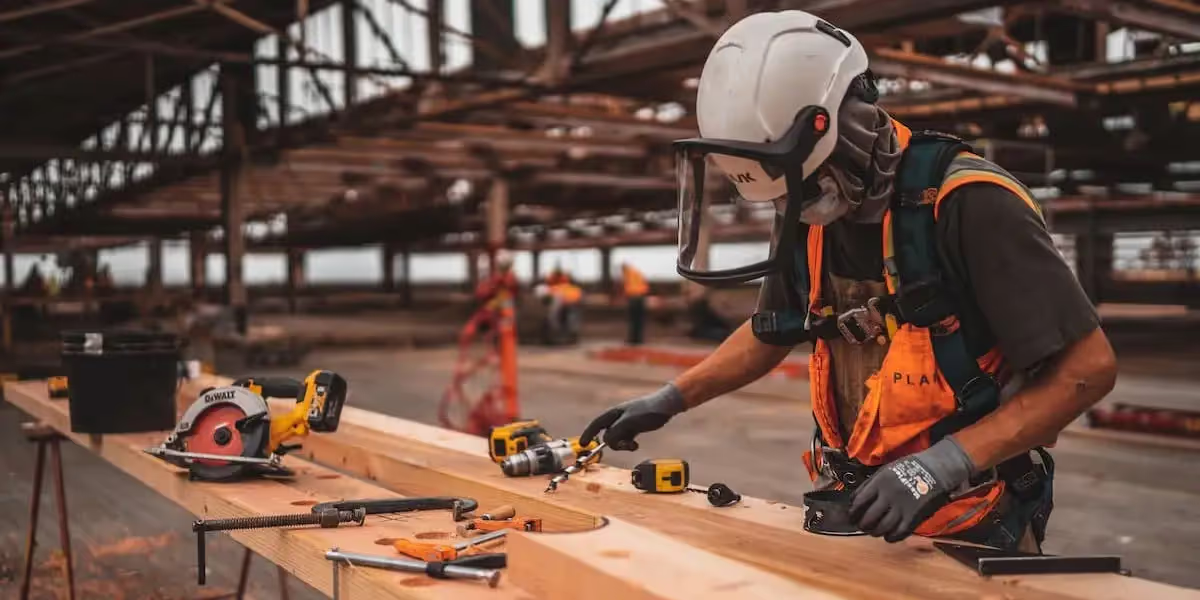
When you think about job site hazards, physical risks like unprotected falls and unmarked zones probably come to mind. However, it’s the invisible hazards like anxiety, depression, and suicidal thoughts that pose just as much, if not more, danger to Australian construction workers every day.
The Australian construction sector is in the midst of an ongoing mental health crisis, exacerbated by the high-stress environment and recent years of turbulence, facing challenges to prevent worker deaths and raise awareness of these dangers.
Our mission at Foremind is to make mental health support accessible to every worker across every industry. To raise awareness of the challenges workers face, we’ve compiled a comprehensive list of mental health statistics in the construction industry, from findings both in Australia and internationally.
How Prevalent Are Mental Health Issues In The Construction Industry?
Compared to other industries, construction is disproportionately impacted by mental health issues.
- It’s estimated that on average, one construction worker is lost to suicide every two days in Australia [1]
- Apprentices are at particular risk due to their typical age. It’s estimated they are two and a half times more likely to die by suicide than other young men their age [2]
- According to Mates in Construction, men in the building and construction industry are 53% more likely to take their own lives than men employed in other industries [3]
- A 2018 study by Swinburne University found the prevalence of poor mental health is 2x higher than the rest of the Australian population [4]
- The study also found levels of depression, anxiety and stress were 40% higher than average population for construction workers [5]
Black Dog institute estimated that 1 In 4 construction workers in Australia had high symptoms of depression and/or anxiety [6]
- In the US a 2024 study by the CDC found that almost 50% of of construction workers reported having or had previously experience depression. In the same study, Over 50% of respondents reported having felt down, depressed, or hopeless as well as nervous, anxious, or on edge on several or most days during a 2 week period [7]
- While in the UK, a 2022 study found that a third of construction workers experience elevated levels of anxiety every day [8]
- In the US research by the CDC found that the construction industry has the highest suicide rate of all industries [9]
What Are The Causes Behind Mental Health Issues In Construction?
Demanding work conditions, including high workloads, poor work-life balance, excessive travel time, and poor job security are all contributors to occupational stress and mental health issues, with construction workers often experiencing these adverse conditions more intensely than those in other industries.
Research from Swinburne University reported construction workers are highly stressed, reportcompromised mental and physical health, have unsatisfactory levels of work-life balance,and exhibit very high rates of burnout. [10]
- While in the UK, a 2023 survey of construction workers found that the cost of living crisis (39%), the rising cost of materials (36%) and finances (28%) were cited as the main causes of respondents’ mental health issues [11]
- UK research found that approximately 48% of construction workers have taken time off due to unmanageable work stress [12]
Bullying and Harassment Are Also Prevalent, Contributing To A Wider Crisis
The construction industry is more prone to bullying also, generally creating a more hostile work environment than other industries leading to increased rates of chronic stress, anxiety, depression, and reduced job satisfaction.
- 2020 research prepared by the Australian Institute for Suicide Research and Prevention indicated that a large proportion of Queensland construction industry apprentices have experienced workplace bullying [13]
- Similarly, in the UK it was found that 64% of manual workers experienced stress due to bullying [14]
See a full list of bullying in the workplace statistics.
Mental Health Issues Have Significant Costs For The Industry
The cost to both businesses and the economy at large due to mental health is significant, due to the costs of direct healthcare and support services, lost productivity due to absenteeism and presenteeism, and the burden of informal care provided by family and friends.
- Mental health in the construction industry costs Australian businesses that ignore mental illness in the workplace nearly $11 billion annually [15]
- According to Safe Work Australia, the economic impact of poor psychological health in the workplace is substantial. It includes both direct costs like workers’ compensation claims and indirect costs such as reduced productivity, absenteeism, and the need for recruitment and training of new staff [16]
Lack of Awareness and Hesitation To Seek Help Are Major Barriers
Lack of awareness and reluctance to seek help are significant barriers to improving mental health in the construction industry, where stigma and a culture of toughness often prevent workers from addressing their mental health needs.
- A survey by MATES in Construction found that a significant proportion of construction workers are not fully aware of the mental health support services available to them. For instance, only 50% of workers knew about the 24/7 helpline provided by MATES [17]
- Black Dog Institute found that 25% of construction workers had never accessed or looked up resources, services, or information to assist them in understanding or addressing mental health issues in the workplace [18]
Stigma around mental health is a critical barrier, 70% of construction workers reported that they felt uncomfortable discussing mental health issues with their colleagues or supervisors [19]
- Workers often fear that disclosing mental health issues could lead to negative consequences such as job loss or being perceived as weak. A report by Safe Work Australia found that 55% of workers were concerned about job security if they sought help for mental health problems [20]
- In the US , only 17% of workers would discuss mental health issues with their supervisor. In the same survey, 78% reported shame and stigma and 77% reported fear of judgment by peers as the main reasons why construction workers wouldn’t seek care [21]
- A UK survey found that 59% of construction workers did not tell their employer that the reason they needed time off was for mental health or that they did not receive the appropriate level of support from their managers when they were facing mental health issues [22]
Workplace Policies Are Becoming More Prominent But Still Face Challenges
Workplace mental health policies and informal support processes are becoming more common in the construction industry, reflecting a growing recognition of the importance of mental well-being. However, room for improvement remains.
- According to a Deloitte report, approximately 80% of employers surveyed stated that mental health and well-being initiatives were a priority for their organization. [23]
Recent Safework research found that 64% of construction workers have had to help a colleague concerning a mental health issue [24]
- Safe Work Australia’s reports emphasizes the need for scalable solutions that can be effectively implemented by organizations of all sizes. Smaller businesses often face significant barriers due to limited financial and human resources [25]
- Workplace Initiatives may be missing the mark, with recent research indicating participants were most likely to seek help from a partner and least likely to seek help from a workplace Mental Health First Aider/ Champion [26]
- In a 2010 research project, of a sample of construction workers who attended mental health training, 98.8% of participants agreed or strongly agreed that they “know where and how to get help now” [27]
How Foremind helps
The Australian construction sector is in the midst of an ongoing mental health crisis, at Foremind we recognise that this workforce has a need for individualised and targeted support.
Our EAP as well as psychosocial hazard management provides targeted support through resources, videos and information that speaks to the specific challenges of these workers.
Our mission at Foremind is to make mental health support accessible to every worker across every industry. Find out how we can help your team today, book a demo now.
Data Sources
[1] “Building mental health into the construction industry”, http://www.engineersaustralia.org.au
[2] “Mental health in the construction industry”. http://www.pc.gov.au
[3] “Blueprint For Better Mental Health and Suicide Prevention”, http://www.constructionblueprint.com.au
[4] “Measuring the psychological impact of work related stress and related occupational factors in the Australian infrastructure construction industry”, http://www.overnewton.vic.edu.au
[5] “Measuring the psychological impact of work related stress and related occupational factors in the Australian infrastructure construction industry”, http://www.overnewton.vic.edu.au
[6] “Black Dog Institute turns to construction workers to address mental health support”, http://www.blackdoginstitute.org.au
[7] “Assessment of Construction Workers’ Mental Health”, stacks.cdc.gov
[8] “Mental Health in UK Construction: The Statistics”, http://www.matesinmind.org [9] “Suicide Increasing Among American Workers”, archive.cdc.gov
[10] “Measuring the psychological impact of work related stress and related occupational factors in the Australian infrastructure construction industry”, http://www.overnewton.vic.edu.au
[11] “Mental health in construction remains a major concern”, http://www.pbctoday.co.uk
[12] “Mental Health in UK Construction: The Statistics”, http://www.matesinmind.org
[13] “The Impact Of Workplace Bullying On Mental Health And Suicidality In Queensland Construction Industry Apprentices”, mates.org.au
[14] “The Impact Of Workplace Bullying On Mental Health And Suicidality In Queensland Construction Industry Apprentices”, mates.org.au
[15] “Spotlight: Mental health in Construction in Australia (+Tools to help)”, http://www.latham-australia.com
[16] “MATES in Construction”, mentallyhealthyworkplaces.gov.au
[17] “MATES in Construction”, mentallyhealthyworkplaces.gov.au
[18] “Black Dog Institute turns to construction workers to address mental health support”, http://www.blackdoginstitute.org.au
[19] “Black Dog Institute turns to construction workers to address mental health support”, http://www.blackdoginstitute.org.au
[20] “MATES in Construction”, mentallyhealthyworkplaces.gov.au
[21] “Mental Health and Well-being in the Construction Industry”, workplacementalhealth.org
[22] “”Mind matters: construction workers reply to CN’s mental health survey”, http://www.constructionnews.co.uk
[23] “”Mental health and well-being in the workplace”, http://www.deloitte.com
[24] “Findings Report: Mental Health in Construction 2022”, http://www.safework.nsw.gov.au
[25] “MATES in Construction”, mentallyhealthyworkplaces.gov.au
[26] “Workplace Research Monthly”, http://www.comcare.gov.au
[27] “MATES in Construction: Impact of a Multimodal, Community-Based Program for Suicide Prevention in the Construction Industry”, http://www.ncbi.nlm.nih.gov

Hello 👋 I’m Joel the founder of Foremind.
Are you ready for simplified support & compliance?
Latest insights
Answers to the frequently asked questions.
Still have questions?
Email us at enquiries@foremind.com.au and we'll get back to you quickly with a response
Yes, we have culturally competent counsellors available, including those able to work with first nation and CALD employees.
Onshore on secure AWS Servers in Sydney Australia. All data is encrypted in transit and at rest and our entire team is located in Australia.
Employees can access our platform on any device (mobile, laptop, desktop, etc.) as long you have the website link - no need to download any app on devices. You wouldn’t need to enrol any of your staff individually.- When we do our onboarding, we ask for the first name, last name and email of all your employees, and send out an email invite to all them which will allow them to create their own individual account to access the platform. For new staff we can also invite them or provide you with a unique link to embed in your onboarding process, whichever is more convenient for you. We also kick things off with a launch webinar or video to make sure everyone is aware of Foremind and how to use it. We’ll also provide you with any collateral such as posters, QR codes, brochures etc. to help drive awareness and encourage people to create an account in the platform.
The support line is answered by our reception service 24/7. It is for urgent platform or session-related issues only (e.g. *“My counsellor didn’t show”*) or helping staff create an account.
